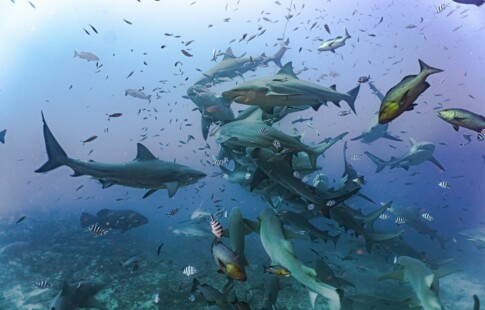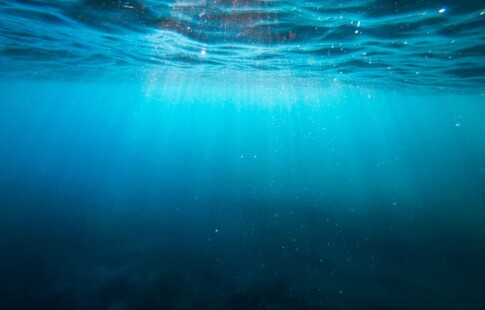
What is Ocean Warming and Why Does it Matter?
We are reader-supported. When you buy through links on our site, we may earn affiliate commission.
In 2015, the United Nations established the Paris Agreement, creating urgency around climate change prevention. When President Biden took office, he signed the document and vowed to minimize national carbon emissions. As we develop a clean electric grid and produce more renewable energy, individuals may question the increased demand for carbon reduction efforts to answer what is ocean warming.
While many citizens recognize climate change as a negative phenomenon, few understand the extent of its active ecological destruction. Some notice its connection to increased surface-level degradation, like wildfire, and greater challenges are occurring below the waterline. Some may question, “What is ocean warming and how can it reduce the global ecosystem’s stability?”
The Role of Greenhouse Gases
To understand ocean warming, we must first assess climate change as a whole. When individuals heat their homes, power their vehicles and charge their electronics, they utilize fossil fuels. Nearly 80% of America’s power comes from fossil fuels, like natural gas and coal.
During combustion, the power source produces greenhouse gases, polluting the environment. When the emissions reach the atmosphere, they alter their composition and ability to make life-sufficient surface temperatures.
Naturally, Earth absorbs the sun’s energy, produces heat, warms its surface, collects excess elements and sends them to space. Greenhouse gases increase heat production with their efficient solar radiation conversion rates. They also hold extra energy in the atmosphere, filtering it back through the warming process.
Over time, the emissions impacts increase the global temperature, creating various ecological degradation effects. Some regions experience elongated drought periods, limiting crop yields and food security. Other areas encounter frequent summer heatwaves, forcing various species to migrate.
The ocean acts as a buffer, reducing the effects of climate change, absorbing a portion of rising surface-level heat. Earth’s temperature is increasing by 0.32° Fahrenheit (F) every decade since the 80s. The ocean’s absorption of surface-level heat protects society from worse climate change effects.
Without the ocean, rising temperatures would hinder society’s ability to protect itself from fatal effects. While humanity remains stable, marine species experience adverse impacts. As the sea absorbs heat, it undergoes deoxygenation, creating challenges for aquatic life.
The Deoxygenation Impact
As global seawater temperatures increase, its ability to hold oxygen diminishes. Conventionally, cool and warm water mix to ensure complete ocean oxygenation. With ice caps melting, the differentiation in water temperatures becomes more extreme, creating a greater division.
Without the mixing of cold and warm seawater, deeper regions are unable to experience oxygenation. The phenomenon creates adverse environmental effects for marine species. If creatures cannot access enough oxygen to survive, mass extinction occurs.
Rising ocean temperatures combined with agricultural runoff also increases deoxygenation. When farmers use synthetic fertilizers and pesticides on their crops, rainwater can carry them to nearby rivers and streams, eventually transporting them to the sea. The nitrogen and phosphorus-rich runoff promotes algal blooms.
When algae grows excessively in an aquatic region, it consumes significant quantities of oxygen. It is difficult for plant life to survive in the eutrophication-ridden areas, therefore marine species must migrate towards more compatible regions. During the migration process, some creatures experience food and shelter limitations, placing them in danger.
Without adequate resources, species suffer fatal effects. Deoxygenation is one of many human-induced ocean impacts, reducing the stability of aquatic ecosystems. It is essential for society to increase its awareness of the impacts of ocean warming, promoting sustainable change.
Why Does it Matter?
Ocean warming is causing significant alterations to marine habitats. The effects are reducing aquatic biodiversity levels. Whale sharkers are one species experiencing severe impacts, depleting their population to nearly 7,000 globally.
As more species encounter endangerment, the global ecosystem suffers. Throwing off the food chain’s balance creates a ripple effect of degradation, impacting humanity. Without an abundant supply of fish and other seafood, coastal communities may suffer.
Many less developed countries, especially islands, rely on fishing to support their community’s nutrient needs. Marine biodiversity also benefits commercial fishers and tourism professionals. When deoxygenation and ocean acidification destroy reefs, the economy suffers.
Coastal communities rely on snorkeling and diving to support job security. Between the effects on tourism and fishing, professionals estimate ocean warming degrades the economy by $428 billion annually. Fortunately, there are methods of reducing climate change’s impacts on marine ecosystems.
How You Can Help
Individuals can slow and eventually stop Earth’s temperature increase by minimizing their greenhouse gas emissions. The majority of emissions derive from the transportation sector. You may reduce your contribution to vehicle-caused pollution by investing in an electric car.
Another significant portion of air pollutants comes from residential heating. You can decrease your carbon footprint by installing rooftop solar panels and sourcing renewable energy heating electricity. Over time, minor impacts make a big difference, so cutting down on emissions in any way possible helps.
Share on
Like what you read? Join other Environment.co readers!
Get the latest updates on our planet by subscribing to the Environment.co newsletter!
About the author

Jane Marsh
Starting from an early age, Jane Marsh loved all animals and became a budding environmentalist. Now, Jane works as the Editor-in-Chief of Environment.co where she covers topics related to climate policy, renewable energy, the food industry, and more.





